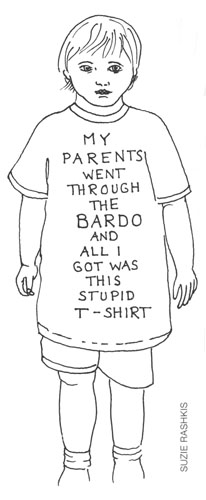Basic Books: New York, 1993.
262 pp., $25.00 (cloth).
We are becoming fluid and many sided…evolving a sense of self appropriate to the restlessness and flux of our time … I have named [this mode of being] the “protean self” after Proteus, the Greek sea god of many forms.
Thus Robert Jay Lifton begins his most recent book. For over thirty years, Lifton, a dedicated, intrepid reporter and a psychiatrist professionally concerned with violence and the survival of our species, has been reminding us of our twentieth-century capacity to destroy ourselves, particularly through nuclear holocaust. In his previous books, such as Death in Life: Survivors of Hiroshima and The Nazi Doctors, Lifton has brought us poignant psychological portraits of real lives, of “survivors and perpetrators” who intimately reflect “the dark side of human behavior.” His courage lies not simply in his illumination of realities we wish to avoid, but in his refusal to comfortably ascribe evil merely to others: it is not just that evil is banal, as Hannah Arendt once said of Adolf Eichmann, but that we have the capacity to “go along with others” and ignore or participate in evil ourselves.
Taking a more theoretical turn than in previous works, in The Protean Self Lifton plausibly asserts that while our values, beliefs, lifestyles, personality characteristics, and relationships once had continuity and consistency, they are now far more changeable. One example:
A [Japanese] student still in his early twenties could describe a personal journey from childhood emperor worship during the Second World War, to embrace of democracy and all things American during the U.S. Occupation, and of Western principles of individualism (especially as conveyed by films), to a return to traditional Japanese cultural elements, to intense Marxism and romantic communist activism, to periods of hedonism with heavy drinking and random sex, to immersion as a young executive in a powerful corporation.
Whew! But not to worry, to Lifton this may represent strength rather than dissolution—our flexibility can save us. “In a time of fragmentation and trauma,” suggests Lifton,
proteanism can awaken our species belonging, our species self. We can assert our organic relationship to each other and to nature…experience, amidst our cultural diversity, that common humanity … of the characteristics we share as a species…the life experiences we share.
Lifton bases his arguments on an idiosyncratic mix of interviews (mostly with social activists and Christian fundamentalists, and with several civic leaders and poor African-Americans—hardly a random sampling) and an impressively rich collection of quotations from books, plays, and contemporary journalism. He focuses on existentialism’s psychological issues—its stark look at the realities oflife and death, and its exhortation to be fully responsible and alive in the moment. In so doing, he produces a report of who we are becoming in these changing times. But unlike other paradigmatic models—Whyte’s The Organization Man, Toffler’s Future Shock, Riesman’s The Lonely Crowd, or Lasch’s The Culture of Narcissism, all of which offered views which ranged from sobering to gloomy—this one has an upbeat message: the protean journey for meaning (Proteus appropriately makes an appearance in the Odyssey) can be trusted as a process—it needn’t be feared or require a unique outcome.
Lifton, who spent time in Japan in the early 1960s, appears to eye with some suspicion Zen master Dogen’s injunction to “forget the self’ so that one may be enlightened by all phenomena. But he comfortably embraces the return from such states. In paraphrasing the philosopher Charles Taylor, he warns that
whatever the claim of Eastern disciplines or Western mysticism, there is no real “escape from self.” Our very experience of high states in which we seem to move beyond the self are testimony to its range and possibility. And the quest (in Zen Buddhism, for instance) for formlessness is, in actuality, an effort to have achieved, upon one’s “return,” changes or alterations in the self’s forms. Those forms always include what Taylor calls “common space” with other human beings—shared structures having to do with family, ethnic groups, society, and culture, as well as with innate psychobiological tendencies that are the “common space” of humankind.
Thus Lifton observes that our rigid ideas of self are failing; however, he has his eye not on enlightenment, but on the survival of humanity.

Lifton diagnoses our condition as that of becoming protean selves and sees our species’ plight as potential self-annihilation. Although he warns us of the dangers of defensively slipping into fundamentalism, and identifies realistic, hopeful alternatives (for example, “Protean flexibility enables one to move toward empathy or to return to it after a lapse”), his general optimism (and bias toward interviewing social activists) renders his enthusiastic embrace of proteanism a perhaps too-facile prescription for solving the problems of alienation, identity confusion, hatred, and violent conflict, not to mention species survival and environmental problems. However, by turning the disturbing instability of our changing times and selves completely on its head, Lifton successfully shows us that we don’t have to fear it, that we can even employ it toward uplifting ends. We have a choice.
Thank you for subscribing to Tricycle! As a nonprofit, we depend on readers like you to keep Buddhist teachings and practices widely available.